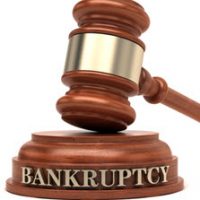Modifying a Chapter 13 Repayment Plan

Despite your best planning, sometimes life throws you a curveball. You might suddenly become ill, lose a job, or have your hours reduced. For most Americans, any unexpected drop in income can wreak havoc on their lives. But those with a Chapter 13 bankruptcy have another problem—you might not be able to continue making payments on your repayment plan. What are your options?
Chapter 13 Basics
A Chapter 13 bankruptcy is also known as a wage earner’s plan, and it allows you to set up a payment plan lasting 3-5 years, during which you will make payments to your credits. At the end of the payment plan, any remaining sums owed to unsecured creditors can be discharged (wiped out). With a Chapter 13, you can save your home and vehicle, which makes it popular with some debtors.
Talk to a Lawyer about Modification
A one- or two-month pause might not be enough for you to get back on your feet, so another option is to petition the court for a modification to your repayment plan. You will need to submit a new budget to the court along with proof of your changed circumstances.
Not everyone qualifies for modification. For example, your new payment plan must still allow you to pay off priority creditors. In practice, many people lower the amounts they pay to non-priority creditors in order to make this work. But if you are only paying priority creditors under your current plan, then modification will not work.
If you choose to seek a modification, continue to make payments on the current repayment schedule until the court approves your request. Stopping or reducing payments can hurt your case.
Consider Converting to a Chapter 7
In a Chapter 7, your unsecured debts are typically wiped. However, the trustee can sell your assets in order to pay back your creditors. You probably avoided a Chapter 7 precisely because you did not want to lose property, such as your car. Nevertheless, if you can’t stick to a Chapter 13 repayment schedule, a conversion to a Chapter 7 might be your best option. Not everyone can convert, so meet with a bankruptcy attorney to discuss your situation.
Speak with a Plantation Bankruptcy Lawyer
At Nowack & Olson, our Plantation bankruptcy attorneys help consumers understand their options when they cannot continue making payments on their Chapter 13 plan. We’ll take a fresh look at your financial situation and explain the costs and benefits of each option. For a free consultation, contact us today.
Resource:
uscourts.gov/services-forms/bankruptcy/bankruptcy-basics/chapter-13-bankruptcy-basics
